PRSA's all-accredited leadership, responding to complaints against the APR monopoly on national offices since 1975, may allow two non-APRs on board of 17.
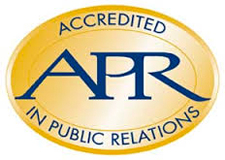 Non-APRs would be allowed to compete for two at-large seats according to a bylaw change announced by chair Joe Cohen of MWW. Candidates must show leadership posts at the national, chapter or district levels or have 20 years in PR.
Non-APRs would be allowed to compete for two at-large seats according to a bylaw change announced by chair Joe Cohen of MWW. Candidates must show leadership posts at the national, chapter or district levels or have 20 years in PR.
The APRs, who comprise only 18% of the current 21,000 members, have again signaled their intent to keep control of the Society for an indefinite period.
They have fought attempts to remove APR from the bylaws since 1999 when that was urged unanimously by the Strategic Planning Committee headed by Steve Pisinski, 2000 chair.
APR Participation Has Declined
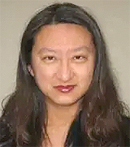 |
The romance with APR continues although participation in the program is half of what it used to be and even that participation was small.
New APRs created in 2013 by the eight members of the Universal Accreditation Board totaled 153, down from 167 in 2012, according to UAB chair Bey-Ling Sha, interim director of the School of Journalism and Media Studies, San Diego State University. The eight have a total of nearly 30,000 members.
UAB no longer breaks out stats for each of the eight. Nearly 90% of those passing the computer-administered, multiple-choice test are PR Society members. Only 5% of the questions are on media and no “live” writing is involved at any stage of the process. Fees total $415.
New PRS APRs averaged 274 from 1993-2002 and dipped to an average of 136 in the nine years ended June 30, 2012.
The monopoly that APRs have on the Society extends to the Ethics Board, whose members must be APR. The implication is that non-APR members are not as ethical as the APRs. The 2013 nominating committee’s 19 members included 16 who are APR when only three at best should be on the committee to fairly represent the non-APR portion of the membership. Prospective members are not warned that only APRs can hold office and they will be, in effect, “second-class members” until they become APR.
About 70% of the nearly 300 delegates to the Assembly are APR which is a chief factor in perpetuating APR control.
APR Was Topic at 2013 Assembly
“Decoupling” APR from national offices was the chief topic at the Town Hall of the 2013 Assembly in Philadelphia.
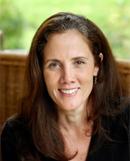 |
Delegates had heard a report by consultant Laura Freebairn-Smith whose $50,000+ study found that APR had little impact in the job market and was “not a legitimate credential because it was self-administered.” She found that “monitoring and enforcement of ethical standards are weak.”
The Society did not provide a breakout of charges by Freebairn-Smith but “professional fees” shot up 70% in 2013 to $497,194 from $284,620. Her firm interviewed 750 members and non-members over a period of several months.
Few APRs at New York Chapter
APR is particularly unpopular in New York where less than 50 of the 700 chapter members have passed the test. Only three of the 31 officers, board and volunteer leaders listed on the chapter’s website are APR—Lea Ann Germinder, Barbara Burns and Irene Maslowski.
One of the severest critics of APR, Steve Cody of Peppercomm, is on the chapter’s “Mock Tribunal of the PR Profession” Sept. 8.
He called APR “Useless, Useless” in a blog July 24, 2009.
The “Tribunal” will consider the question of whether PR people “practice deception.” Reporters, who might be able to testify on that subject, are banned from the meeting. They have been told they can watch it on a webcast and if they show up, security will block them from attending.
Bob Woodrum, who handled PR executive searches for many years for Korn/Ferry International, the firm now being used by the Society in its search for a new CEO, said in 1999 that continued support of APR “requires a suspension of disbelief akin to a religious zealotry.”
“In the face of common sense, facts and a reality-check by executive recruiters, who are mirrors of the attitudes of corporate America, the Society marches to its own misguided drumbeat,” he said.
He referred to a two-year study of 16 recruiters published in 1999 by Rene Henry and other members of the Society’s College of Fellows that found almost no interest in APR among the recruiters.
Asked about the value of APR, recruiters gave such answers as, “zero,” “a negative,” “no relevance,” and “a sign of naivete.”


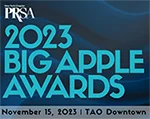 PRSA-NY today announced its five honorary co-chairs for its Big Apple Awards ceremony gala slated for TAO Downtown on Nov. 15.
PRSA-NY today announced its five honorary co-chairs for its Big Apple Awards ceremony gala slated for TAO Downtown on Nov. 15. PRSA-NY president Carmella Glover today issued a "heartfelt apology" on behalf of the chapter for her Oct. 14 message that "caused disappointment and hurt to some of our valued members."
PRSA-NY president Carmella Glover today issued a "heartfelt apology" on behalf of the chapter for her Oct. 14 message that "caused disappointment and hurt to some of our valued members."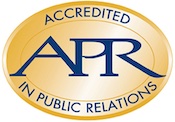 The leadership of Public Relations Society of America is backing a move to change the current “must-have” APR accreditation to “strongly preferred” as a requirement for a seat on its board of directors.
The leadership of Public Relations Society of America is backing a move to change the current “must-have” APR accreditation to “strongly preferred” as a requirement for a seat on its board of directors.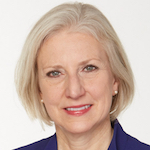 Public Relations Society of American today named Linda Thomas Brooks CEO, succeeding CFO Phil Bonaventura, interim chief since July 2019.
Public Relations Society of American today named Linda Thomas Brooks CEO, succeeding CFO Phil Bonaventura, interim chief since July 2019.


 Have a comment? Send it to
Have a comment? Send it to 
No comments have been submitted for this story yet.